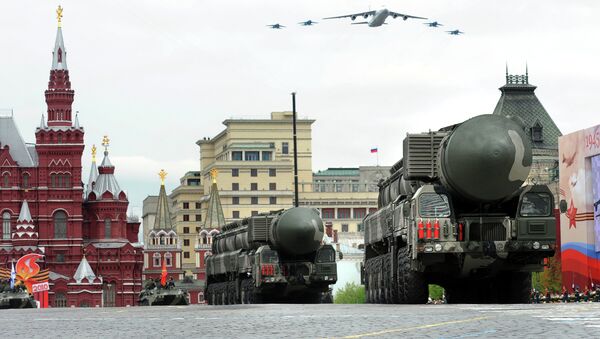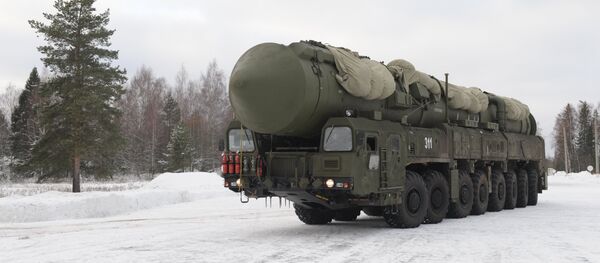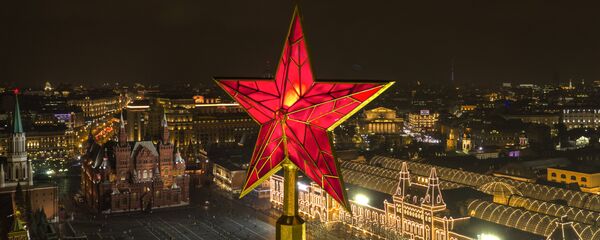Nuclear weapons are the only guarantee of Russia's security, Russian military expert Konstantin Sivkov told RIA Novosti, stressing that reducing Russia's nuclear arsenal in return for lifting US sanctions is unacceptable.
"For the Russian Federation, that, in contrast to the USSR, cannot ensure its security by using solely conventional forces, a nuclear arsenal is the only guarantee of safety," Sivkov believes.
"The potential economic benefits of the lifting of sanctions are simply incomparable with the country's defense matters," he stressed.
Commenting on the issue, Kremlin spokesman Dmitry Peskov noted that Russia was not engaged in nuclear disarmament talks with Washington and proposed waiting until Trump's official inauguration.
According to Sivkov, the disarmament of Russia is particularly dangerous given the fact that other nuclear powers are currently boosting and modernizing their nuclear stockpiles.
For instance, the US President-elect tweeted on December 22, 2016, that "the United States must greatly strengthen and expand its nuclear capability until such time as the world comes to its senses regarding nukes."
The United States must greatly strengthen and expand its nuclear capability until such time as the world comes to its senses regarding nukes
— Donald J. Trump (@realDonaldTrump) 22 декабря 2016 г.
Furthermore, it is no secret that in 2016 President Barack Obama authorized a 30-year nuclear modernization program that will cost $1 trillion. The program includes the deployment of the US' upgraded B61-12 atomic bombs in NATO's European member-states — Belgium, the Netherlands, Germany, Italy — and in Turkey.
"If the incoming US administration is truly willing to discuss nuclear arms cuts, then Russia is ready to take part in these talks on three conditions. The first one involves transporting all US tactical nuclear armaments from Europe back to the US," Korotchenko, chief editor of the Russian magazine National Defense, told RIA Novosti Monday.
However, even in the event of Washington deciding to reduce its nuclear arsenal, there is no guarantee that other nuclear powers, such as China and India, will join the agreement, Sivkov believes. He has called attention to the fact that Beijing is presently strengthening its nuclear capability.
Viktor Ozerov, the head of the Russian parliamentary security committee, echoed Sivkov's concerns.
"Apart from Russia and the United States there are other countries, which have official status of a nuclear powers, so the process should also involve these countries," Ozerov underscored in his interview with RIA Novosti.
Sivkov fears that Trump's proposal could mean that the US President-elect is determined to follow in Obama's footsteps.
"Trump's statement has indicated that he will continue to pursue Obama's policy of Russian nuclear disarmament," Sivkov suggested.
He emphasized that the lifting of sanctions can't be regarding as a bargaining chip in such a delicate field as the country's nuclear safety.
"As for the issue of nuclear disarmament," Slutsky said, "Russia has always been a proponent of it and [Moscow] is ready to discuss our partners' proposals [regarding this matter]."
"But we would talk the issue through only on condition of equality and mutual control in this field," he stressed.
Earlier, Russian upper house of parliament foreign affairs committee chairman Konstantin Kosachev underscored that Moscow won't trade its national security for lifting of anti-Russian sanctions.
"The lifting of sanctions is certainly not an end in itself for Russia. It is not even a strategic goal [for the country] that requires some sacrifice, especially in the field of security," Kosachev told RIA Novosti.
Never miss a story again — sign up to our Telegram channel and we'll keep you up to speed!




